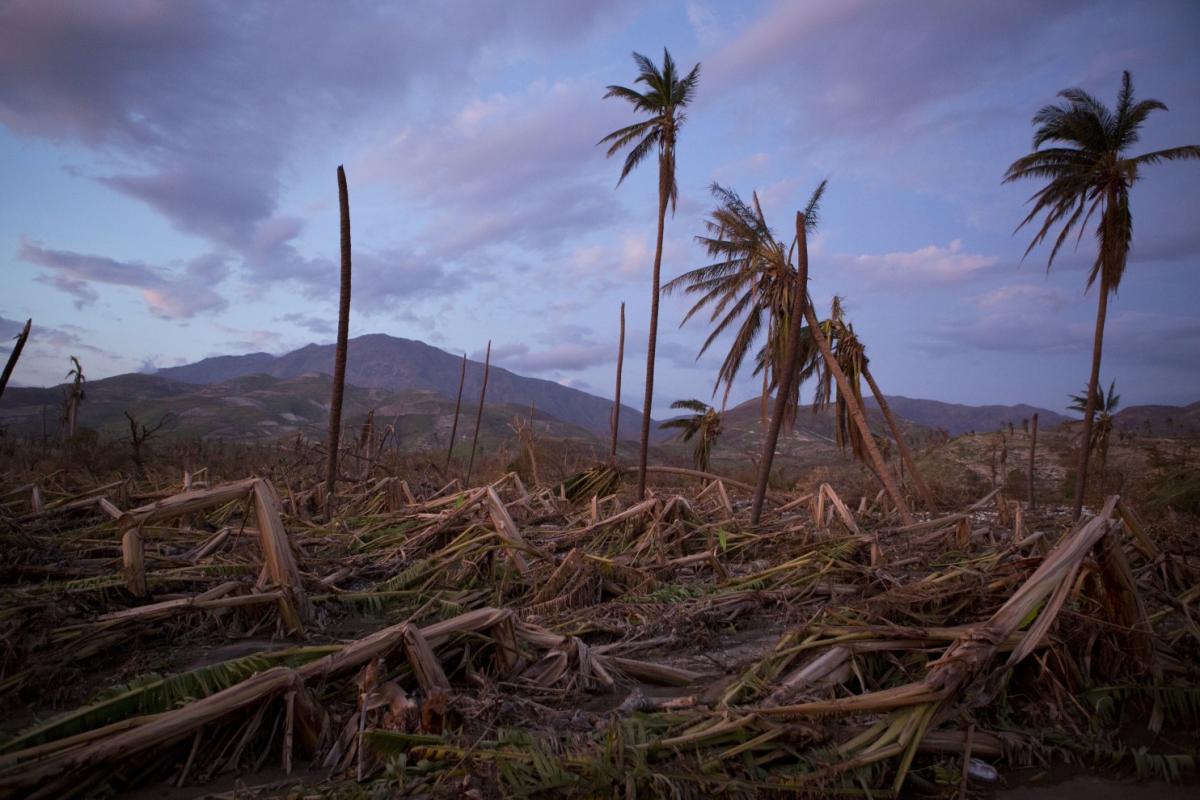submitted by John Carroll

FILE - In this Oct. 10, 2016 file photo, banana and coconut trees are bent and broken along a southern coast road near the town of Roche-a-Bateau, Haiti, left behind by Hurricane Matthew. Hundreds of thousands of people in southern Haiti are facing food shortages three months after the storm destroyed crops and livestock in the region, international aid organization Oxfam said Wednesday, Jan. 4, 2017. (AP Photo/Rebecca Blackwell, File) (The Associated Press)
Associated Press - January 4, 2017
PORT-AU-PRINCE, Haiti – Hundreds of thousands of people in southern Haiti are facing food shortages three months after Hurricane Matthew destroyed crops and livestock in the region, an international aid organization said Wednesday.
A "very poor" harvest is expected over the next two months in the South and Grand Anse departments of the southern Haitian peninsula, an area where most people depend on subsistence farming to survive, Oxfam said in a report calling for more support for a U.N. assistance fund.
The U.N. announced it would provide $139 million in assistance to the region, but that program is underfunded by 38 percent, the aid group said.
Recent Comments